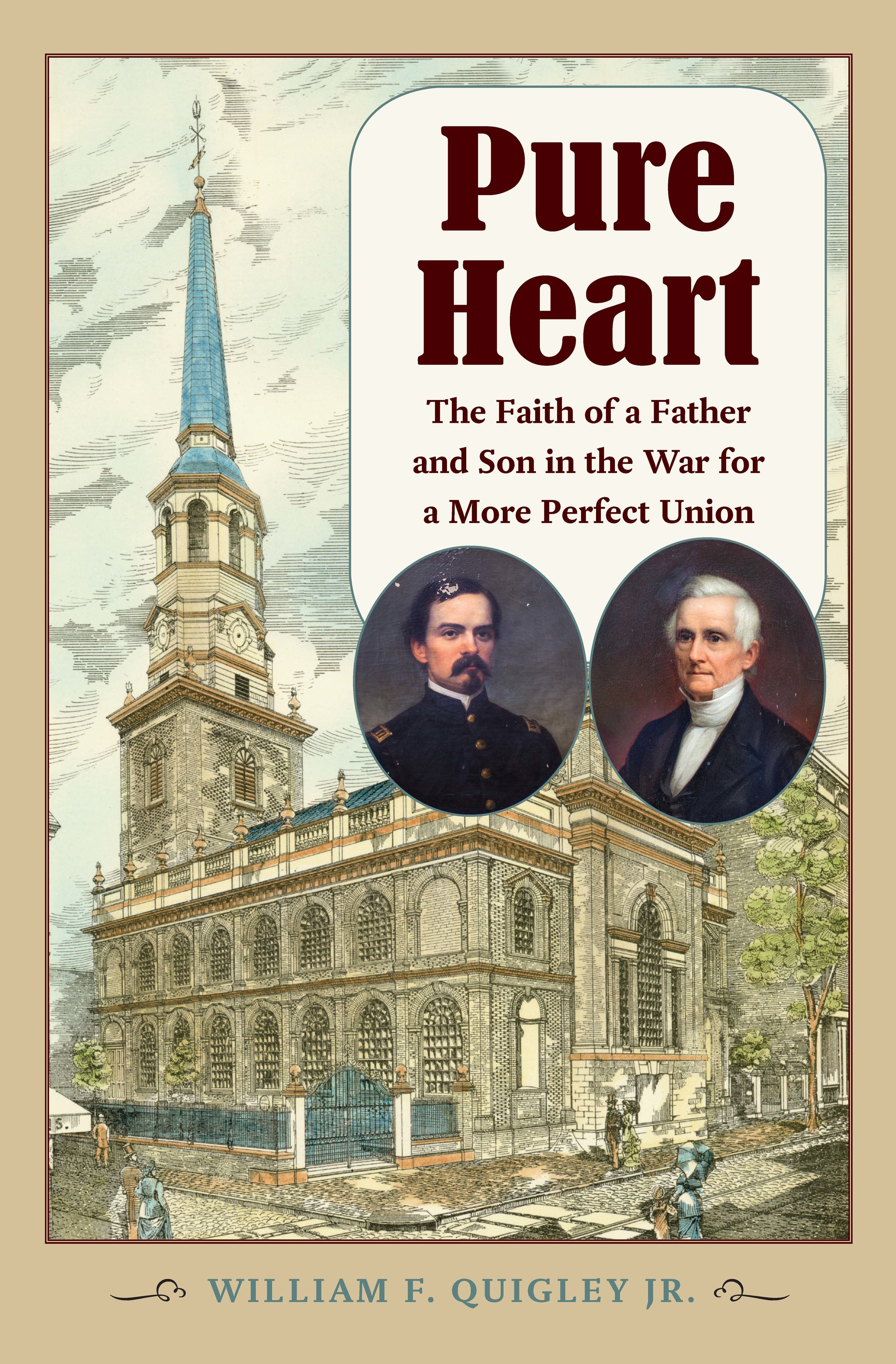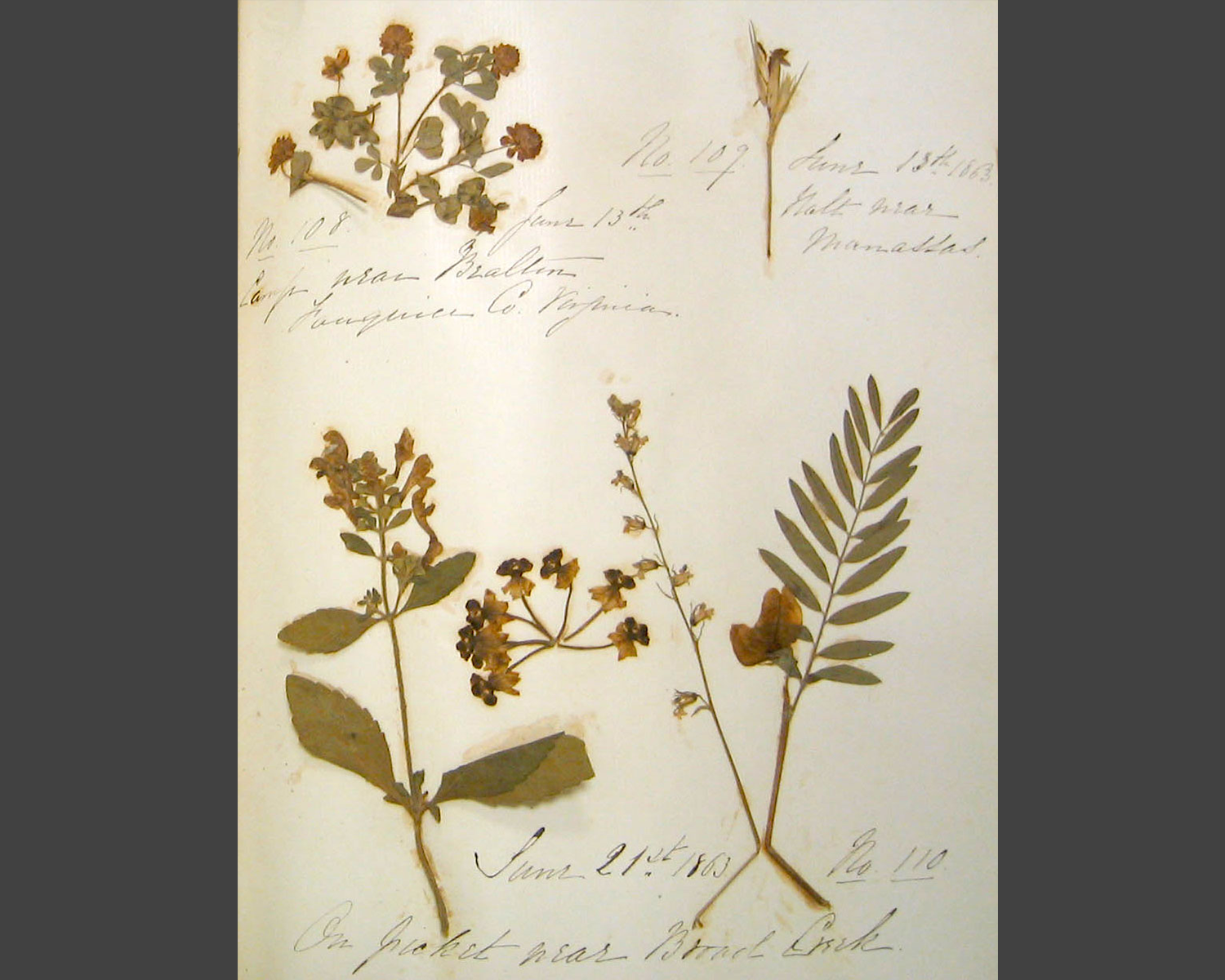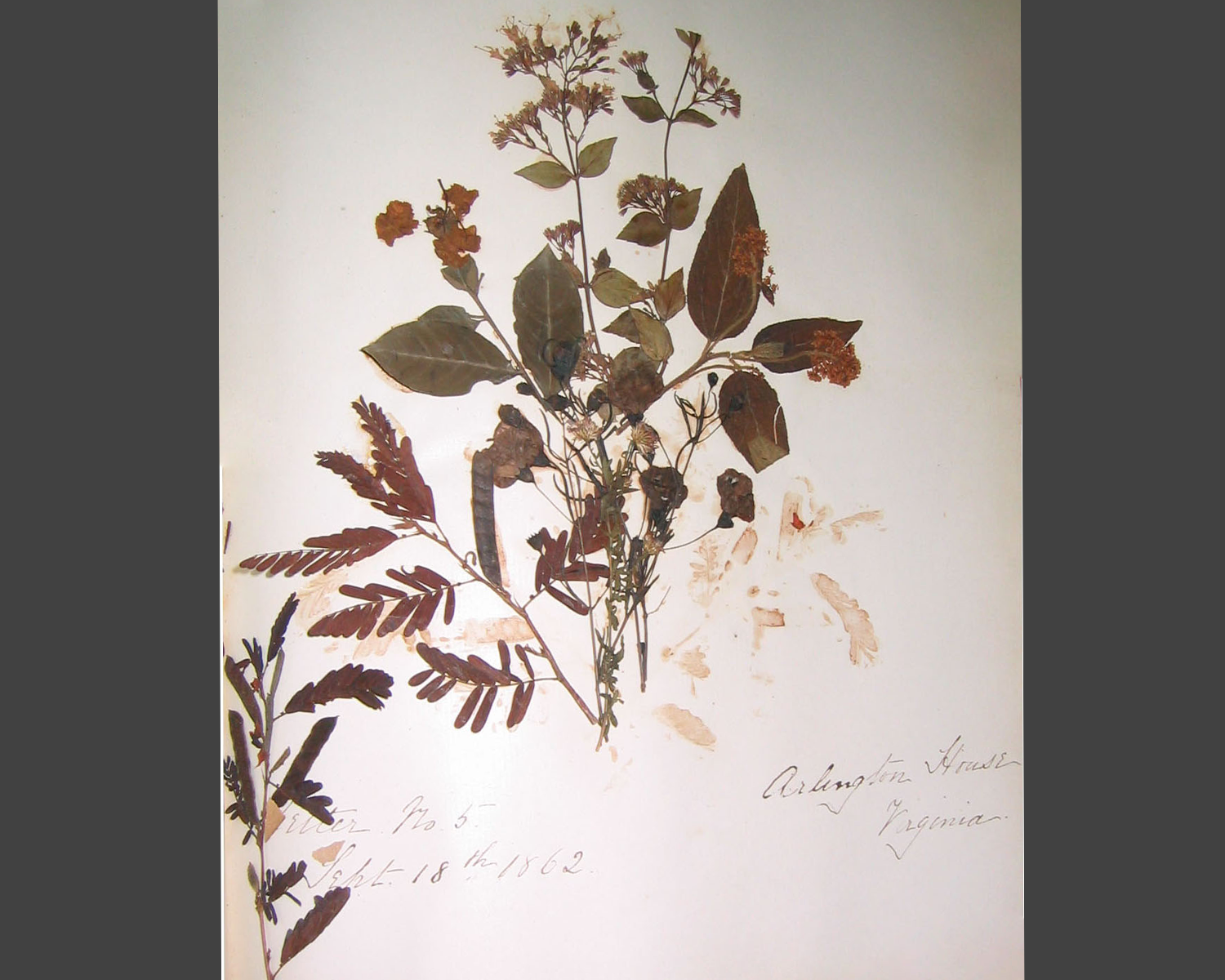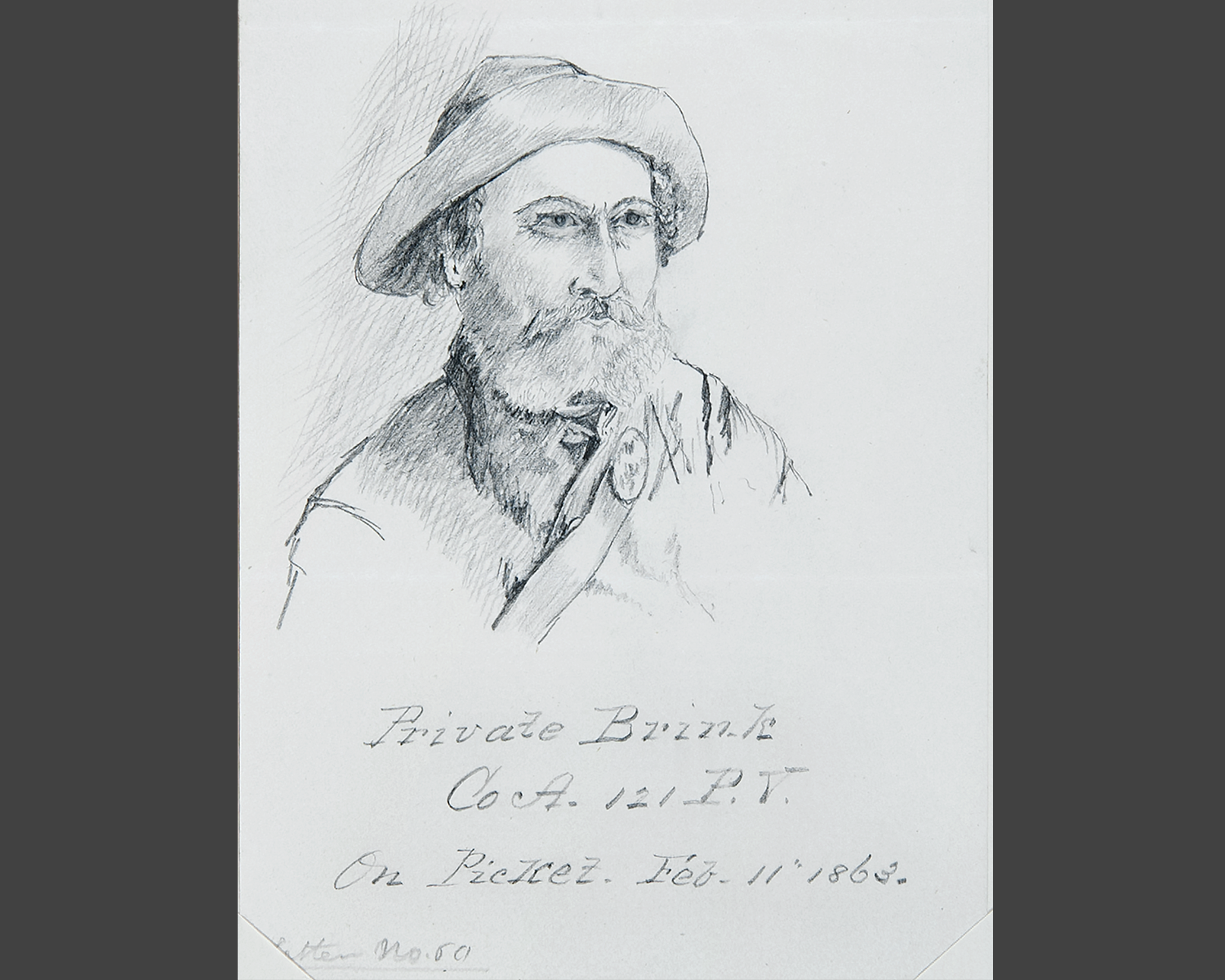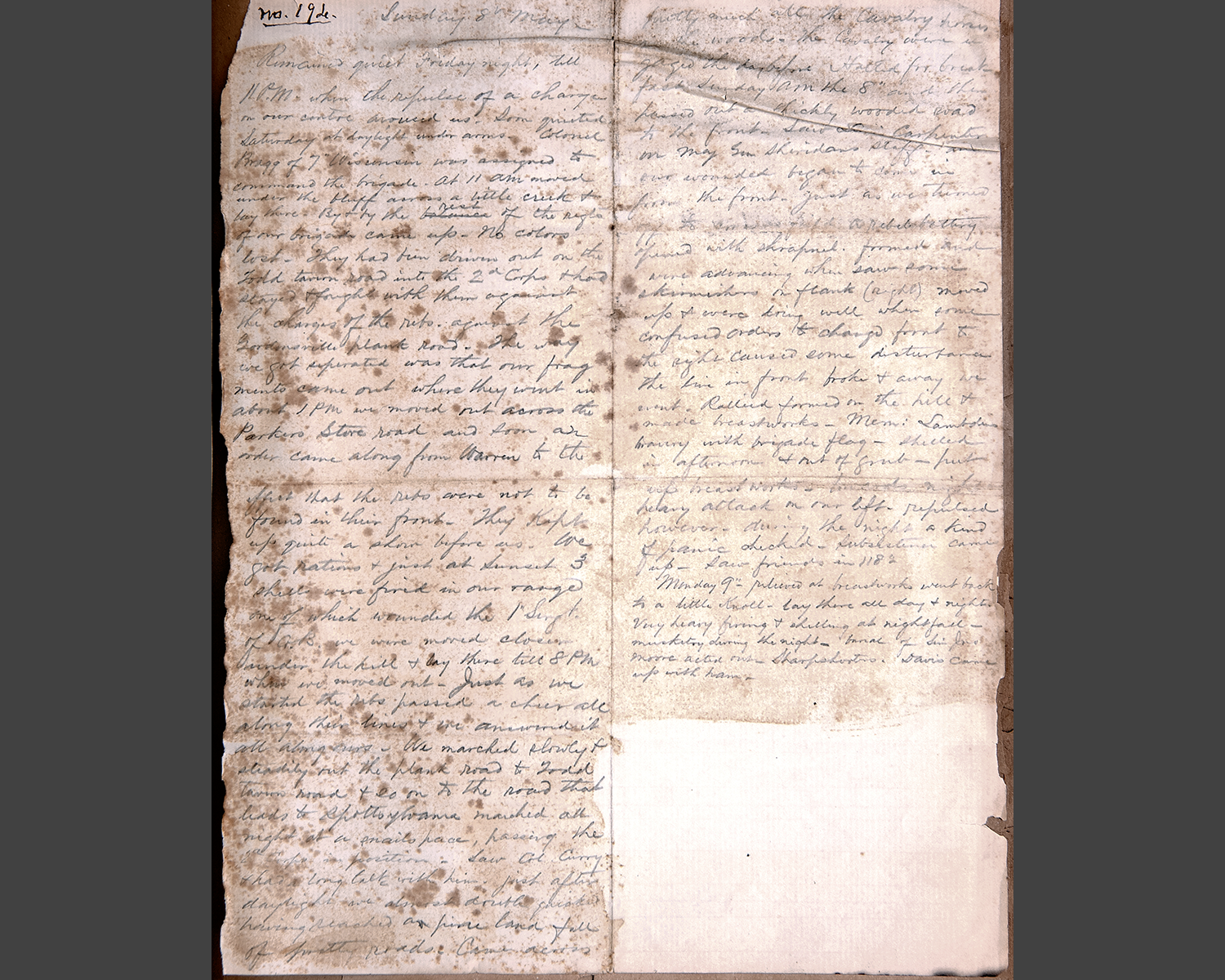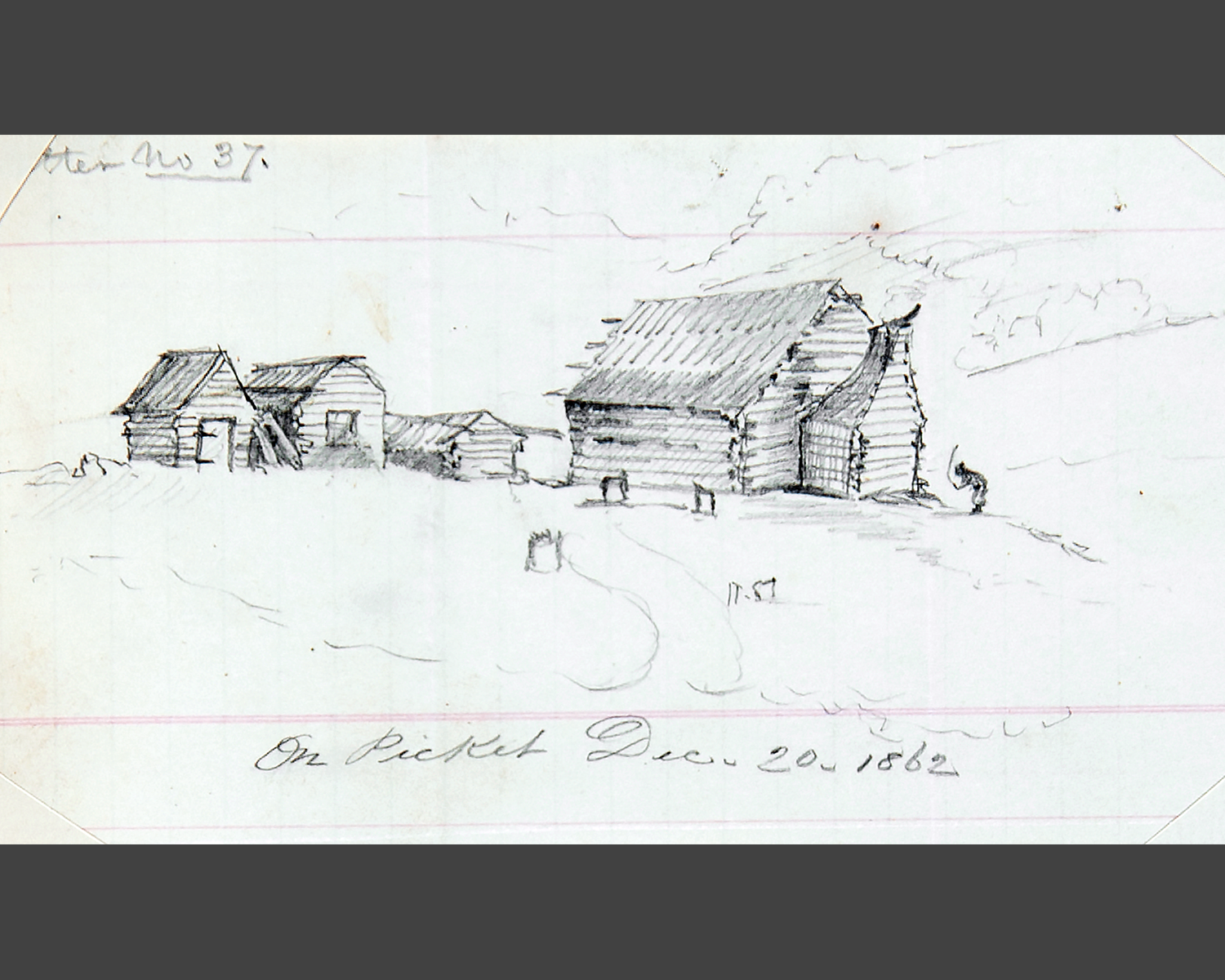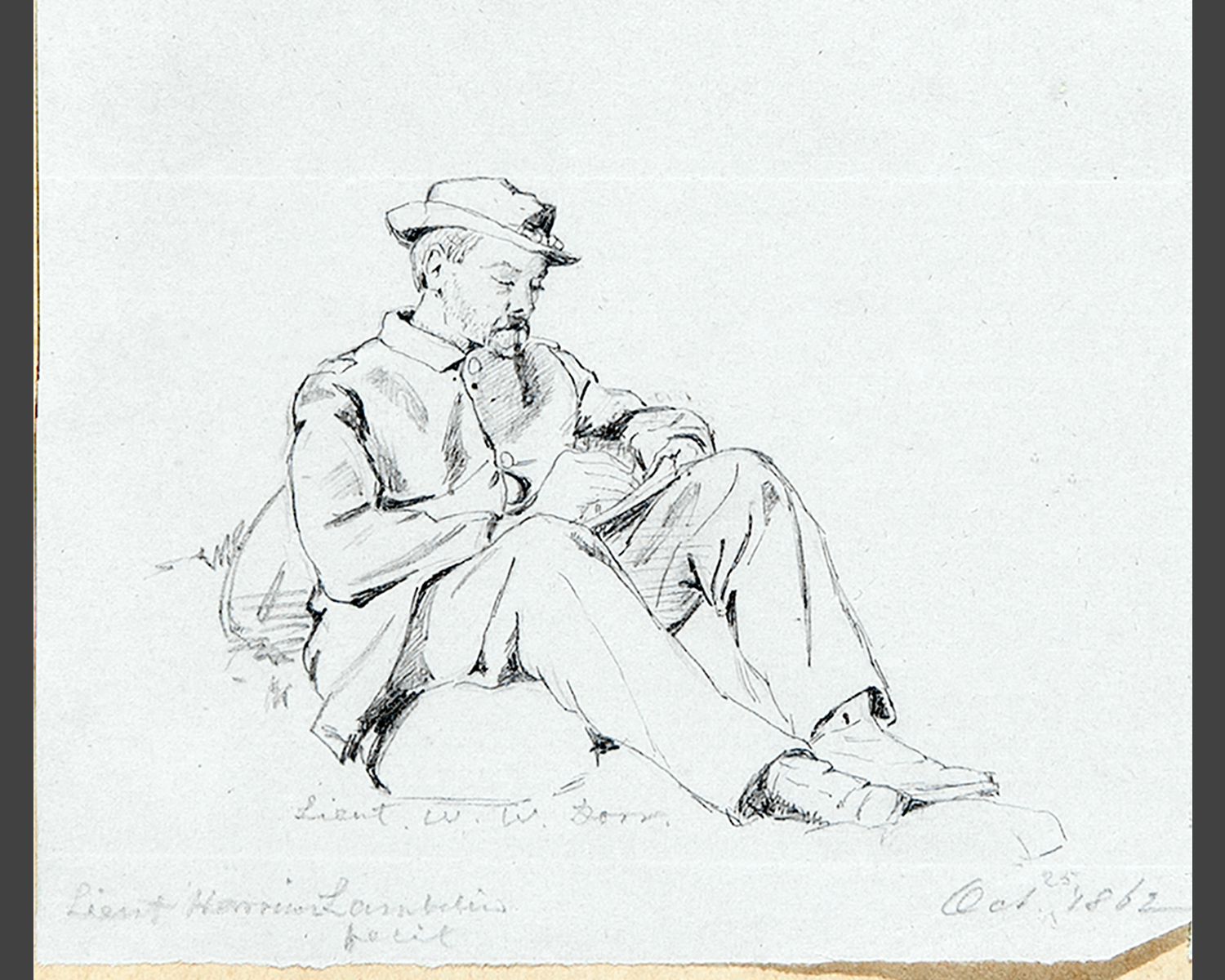PURE HEART
Gleaned from a forgotten trove of letters that a Union soldier wrote to his father, and from a collection of memorabilia that the father kept in grievous memory of his fallen son, PURE HEART tells the true story of a brave soldier honored in his day as “a Christian and a Patriot, ‘Faithful unto death,’” and of the spirit of forgiveness and atonement with which his father saved a landmark American church. Their patriotism and principled civility amid fiery partisanship, racial bigotry, and civil war are lessons for our own time.
More than 20 years ago, while helping colleagues haul laden cardboard boxes from a flooding basement serving then as the archives at The Governor’s Academy in Byfield, MA, I stumbled upon a forgotten trove of Civil War history: a Union soldier’s wartime letters, his and another soldier’s pencil & ink sketches of comrades and camp scenes, and sprigs of wildflowers that he’d clipped and sent to his father. I set out to learn about that soldier, Captain William White Dorr, and my quest led to a still greater trove: an archetypal case of the Union in civil war. PURE HEART, the story of this soldier and his father, is the story of a country at war.
In the summer of 1862, 24-year-old William White Dorr enlisted as a lieutenant in the 121st Pennsylvania Volunteers, a new Union regiment organizing in Philadelphia. Meanwhile, his father shepherded his warring congregation of leading Pennsylvania Republicans and a faction of the city’s and state’s anti-emancipation Democrats. He strived to prevent civil war and fierce partisanship from sundering Philadelphia’s venerable Christ Church (Episcopal), known then and now as “The Nation’s Church” because of its historical ties to the nation’s founding.
The Reverend Benjamin Dorr’s efforts to save “The Nation’s Church” parallel Lincoln’s far greater but comparable challenge to save the Union. Like Lincoln, Dorr invoked a temperate faith apart from the civil religion with which his congregants, like most Americans, crusaded against each other. Dorr prayed that war might be avoided. But, when war came, he stood faithfully in support of the Union and of the war as Lincoln waged it, emancipation included, even unto the most grievous of losses.
The rector’s son was the only line officer to emerge unscathed from his regiment’s storied actions at Fredericksburg, at Chancellorsville, and at Gettysburg, where that unit's heroic stand proved pivotal to the Union’s preservation. To his compatriots in arms and at home, Lieutenant Dorr’s avoidance of injury signified his godliness and the righteousness of their cause. Ten months later, wearing the second bar of an infantry captain, Will Dorr led his company once more into the Wilderness. Captain Dorr was killed in the Battle of Spotsylvania, shot through the heart while leading his regiment in an attack on a fortified Rebel position atop Laurel Hill.
By war’s end, many Philadelphians came to praise the faithful heroism of Captain Dorr and the spirit of charity and forgiveness exemplified by the Reverend Dorr, their shepherd through that political, constitutional, economic, and religious crisis.
Americans today have much to learn from those two men whom mid-19th-century Philadelphians honored alongside Benjamin Franklin with stone memorials to them in “The Nation’s Church."

